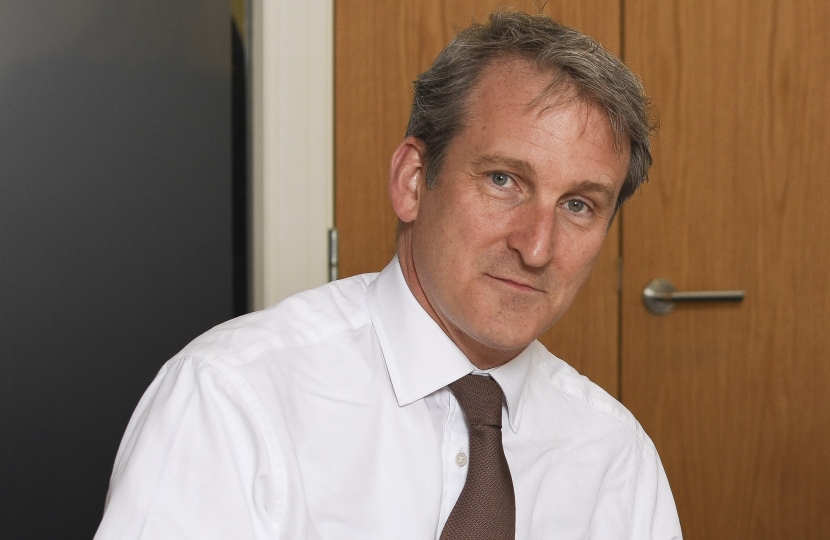
The article below was written by Damian Hinds and published in this week's Petersfield Post and Herald editions:
"It is the news we have all been dreading: for family lives, and for so many businesses. But faced with the increase in numbers the health service has been seeing, decisive action is required.
If we did not take this action now, the consequences later would be so much worse – for lives lost, but also for wider health, and for jobs and firms.
With renewed spread, the warning to ministers was that the Covid-19 caseload could overwhelm the NHS, with projections that were far above the previous “reasonable worst-case scenario”.
“Overwhelm” – it’s a word that has been much-used in the last few days but it’s worth dwelling on what it would mean in practice. It would mean that the numbers of Covid cases would be so large as to stop other essential medical treatments.
Although the creation of the Nightingale Hospitals showed we can increase physical capacity, you cannot of course recruit and train the professionals to staff them at nearly the same rate.
And winter is approaching, with all the respiratory and other conditions that brings, even in a ‘normal’ year.
These are issues that other countries are grappling with too. France and Germany, like the UK, had sought to exhaust the possibilities of a regionally-targeted approach, but now like us will also be entering lockdowns.
For us in Hampshire, and the wider South East, the prevalence numbers had been relatively lower but here as elsewhere the rate of growth has been climbing. The R rate is above 1 in all regions. This is a truly nationwide challenge. And of course, ultimately it is one, national, health service.
We know that the virus has a much more significant impact on older age groups, and those with underlying health conditions. But isolating and protecting every person who may be vulnerable to developing a more serious illness - and leaving others without restrictions - would not be possible.
So, we are now entering a four-week national lockdown, with three key differences to the previous lockdown in the spring.
First, these are time-limited measures. The intention is to ease the restrictions, to a local and regional basis, from the 2nd December. That is how the regulations for Parliament to vote on are set out.
Secondly, the priority to keep young people in education will mean that universities, colleges, schools, and early year settings will remain open. There will also be provision to enable both formal and informal childcare to carry on.
And thirdly, the NHS will seek to maintain its non-Covid-19 services. This is critical for the thousands who will need to call on the NHS for urgent or indeed planned treatment over the winter.
Also critical will be the support available for individuals and businesses. The Job Retention Scheme is being extended until the end of November, with the introduction of the new Job Support Scheme postponed until the furlough scheme ends.
Employers will, as before, be able to utilise the full flexibility of the scheme, with employees receiving 80% of their current salary for hours they are unable to work.
The Prime Minister also confirmed this week that the level of support through the Self Employment Income Support Scheme (SEISS) will increase from 40 to 80 percent of trading profits during November, equating to 55 per cent across the first three-month grant period.
In addition, business premises forced to close in England can access grants worth up to £3,000 per month under the Local Restrictions Support Grant. And £1.1bn is being given to Local Authorities, for one-off payments to enable them to support businesses more broadly.
And more businesses will be able to access additional support as deadlines for applications for government-backed loan schemes and the Future Fund have been further extended until the end of January 2021.
Payment holidays will also continue to be made available for mortgages and credit products such as personal loans and car finance. Homeowners and borrowers that have already started a payment holiday will be able to top up to six months and those who have not yet needed one will be entitled to the same six-month period.
We are undoubtedly facing a very difficult period. But the scientists and medical experts remind us that beyond this, there are some reasons for optimism. We have better medicines and therapeutic treatments, the hope of a vaccine – with multiple studies looking promising, and the more immediate improvements and extension in testing."


